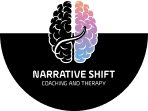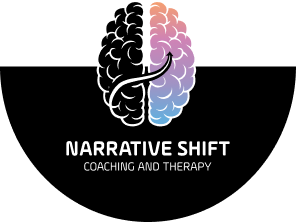



Coaching Services
Our coaching services provide structure, goal-oriented growth, and practical strategies to help you navigate life’s challenges. Through a collaborative approach in a judgment-free space, we help you develop executive function skills, build better habits, and gain clarity in your personal and professional life. With therapy and coaching under one roof, you can tailor your experience to prioritize emotional well-being, executive function coaching, or both—designed to fit your unique needs.
The story society tells about people with Attention Deficit Hyperactivity Disorder (ADHD) makes us seem completely uncontrollable and chaotic. Those with misunderstandings about ADHD believe everyone who has it displays the exact same symptoms and if someone isn’t bouncing off the walls, talking incessantly, and reacting excitedly to every distraction then they don’t actually have a problem. They may think people with ADHD simply need to “try harder” to control themselves and focus on the task at hand.
ADHD is very real and a result of neurodivergence in brain processes that can make succeeding at work, school, or even social relationships extremely difficult. Sometimes these difficulties are not as visible and may go undiagnosed for years or decades even as the effects add unnecessary stress, anxiety, and difficulty to our lives. ADHD does not look the same in every person, but individuals with ADHD might display any combination of the following symptoms:
The list above is not all inclusive and each person with ADHD is a unique individual with differing capabilities and challenges. Luckily, these deficits do not have to be permanent and our coaches work to develop a set of strategies and techniques specific to each client that can help them shift this narrative of struggle and inability towards one of strength and creativity.
Common discussions around ADHD solely focus on the negatives, but at Narrative Shift we know that those with neurodivergent brains have a myriad of incredible gifts that, with a little help and encouragement, can more than make up for any initial deficits. Our coaches focus on giving clients the tools needed to improve the areas of executive functioning those with ADHD often struggle with so they can better utilize their many strengths to succeed in academics, careers, and relationships.
During their time in coaching, therapy, and education our coaches have noticed that those with ADHD often have innovative ideas and creative insights that wow us over and over again. Here are just a handful of the gifts we have identified in past clients and students:
Our clients with ADHD already have many of the qualities they need to shine in school, work, and relationships! Our coaches just help them make the narrative shifts and develop the skills necessary to recognize their amazing value and make it visible to others.
Autistic Spectrum Disorder (ASD) is a common, though often misunderstood and mischaracterized, type of neurodivergence that can make succeeding in friendships, relationships, academics, or work a struggle. ASD can manifest in a multitude of symptoms and no two people with ASD are exactly alike. That said, there are some qualities which many people with ASD may display or relate to and these can lead to shared difficulties in social situations or achieving personal goals. Some examples are:
The popular perception of ASD is often quite negative, but this fails to recognize the incredible strengths, intelligence, and creativity those with ASD possess. With a slight shift in narrative, perspective, and approach, many of the “negative” aspects of autism can be channeled in more productive and appropriate ways. In other instances, symptoms that were once harmful and debilitating can be modified or replaced with new, healthier coping methods and responses. At Narrative Shift, we work with clients to become more self-aware and less resistant while providing valuable techniques to make positive changes in understanding and behavior. Here are just some of the changes Narrative Shift can help our clients make:
Narrative Shift is unique in that our capable coaches can help clients make practical changes through executive function skills while our licensed therapist and founder, Justine Ruotolo, can provide therapeutic services. Justine has a long history of working with autistic clients as well as personal experience parenting children with ASD. Both Justine and the coaches at Narrative Shift enjoy working with this creative, inspiring population and recognize the importance of being calm, supportive guides towards better success and wellness.
It is incredibly overwhelming when we receive dozens of paper assignments over the course of a school day or have a long list of to-do tasks we need to get done at work and home. When we have executive function deficits this overwhelm can result in clutter and confusion, making it even harder to effectively get tasks done. Papers get stuffed into overfilled backpacks, bedrooms get covered in dirty clothes, and appointments get missed since they were never put on a calendar.
To outside observers, particularly those who are neurotypical, it might look like we are sloppy, forgetful, or apathetic. But this isn’t a fair assessment! We may want to be organized, we just don’t automatically have the skills or knowledge to figure out how to effectively put things away or schedule tasks in a way that would be helpful.
When too many tasks or assignments, or even sounds and images, are thrown at those of us with neurodivergent brains, it can lead us to shutting down. If we, as well as those around us, can understand and accept this aspect of ourselves we can start to move away from guilt or shame and towards finding solutions that work.
Our coaches use simple tools and adjustments to help clients develop habits that make organizing more automatic and take less willpower or thought. We provide each client who wants one with a planner and folio to help them physically organize their thoughts and assignments. We then work with clients to identify a scheduling system that works best for them, whether that be in a physical agenda or online calendar, and work on developing habits to get things put on our calendars as quickly as possible.
We then follow up with clients each session to review the next week’s tasks and figure out what is working or what isn’t. Then every few weeks we will go through backpacks and folios to file away old assignments and clear out any leftover paper. Over time, this becomes a more and more automatic process until clients are empowered to complete the majority of these tasks easily on their own!
People with neurodivergent brains can get stuck on a topic or problem and have a hard time finding a way to move on or use a new approach. Other people might see this as being rigid, stubborn, or obsessive and not understand why we can’t just get over it or try something new.
It can make us angry or sad when people don’t understand us and think our problems should be easier to fix or move on from. The subsequent arguments can make us feel lonely and ashamed which just makes it even harder to think of new solutions!
Neurodivergents are passionate and creative which might lead us to being very expressive about views or opinions on things that are important to us. When channeled productively this energy can be an incredible source of power and positivity!
We work with clients to be curious about their own mental processes and to use mindfulness techniques to become more self aware about how their thoughts and feelings affect their activities and relationships. By learning to be more mentally flexible our clients can more easily become unstuck and break the cycle of frustration and shame through flexible thinking!
Task initiation on things we really aren’t interested in can be hard for anyone, but particularly for those with executive function deficits. An essay we have to write can make us incredibly anxious to the point we will do anything to avoid it or the idea of cleaning our room can be physically painful to contemplate making it nearly impossible to get started. In an effort to avoid these hard feelings we might do something more comfortable like playing video games, watching TV, or eating our favorite junk food.
To neurotypical people this might make us look lazy or undisciplined. They might tell us we “just need to do it” and should be able to get started through sheer strength of will. The shame these comments make us feel often has the opposite effect and makes us retreat even further into the other activities we prefer. This cycle of shame and avoidance can be debilitating, leading to bad grades and missed work deadlines.
Neurdivergents aren’t lazy and can be incredibly productive on tasks they are passionate about or find important! However, when a task is uninteresting, difficult, or monotonous it can be really hard to find the motivation to get started. We may even struggle with following through once we begin a task or recognizing when we have successfully completed the task and move on to the next one. Luckily there are several different “brain tricks” clients can learn to address obstacles at each phase.
The first step in getting something done, actually getting started, is called “task initiation.” People with executive function challenges, particularly those with ADHD or ASD, can find it extremely challenging to transition from a fun or relaxing activity to a difficult or less interesting task. Some example strategies we teach clients to help them with task initiation include:
Even if we get started on a task we may have difficulty remaining focused and following the task through to completion. Minor distractions might derail us for long periods of time, even ones that neurotypicals may not notice or consider, and or we can hit a wall that keeps us from pushing forward. Helping ourselves follow through on our responsibilities takes a combination of creating the conditions for success and mentally reminding ourselves why our goals are important using techniques such as:
It might be surprising to hear that even stopping work on a task can be a challenge for those with executive function deficits. However, perfectionism is common among neurodivergents and we might spend more time than necessary trying to improve an already sufficient work product. Effectively ending a task is important as it allows us to conserve our energy and efficiently utilize our time. The following techniques are examples of ways to wrap things up:
Our coaches will present and walk clients through our “menu” of strategies to figure out which ones work best for each person. While there are commonalities between the brains and challenges facing neurodivergent individuals, all of us are unique and have preferences in how we approach the challenges in our life. By allowing clients to decide for themselves which of our techniques fit them best we give them the agency and empowerment to make these shifts when they are alone as well.
A common theme for many with executive function deficits is being overwhelmed by the size or number of tasks we have on our plate. If faced with a big project or new task we aren’t familiar with, it can make us want to give up or avoid doing things that are important for our success.
In the classroom, this might make a teacher believe a student is lazy or goofing off with their friends or devices when they should be working on an important project or assignment. At work or in relationships it might look like a person is incompetent or scattered, jumping from one task to the other without getting anything done. In our careers those we work with on presentations or projects may begin to think we are unreliable or unprofessional. What these people don’t understand is that we aren’t slacking, we just don’t always know where to start or how to get all our ideas in order in an effective way.
One of the most powerful ways to make a task more manageable for someone with a neurodivergent brain is to break it down into smaller chunks. Chunking is the process of identifying all the little, more manageable steps in a bigger project. This can make a big, imposing challenge feel doable and only requires us to take on the task in front of us and not everything at once.
We combine chunking with other methods such as mind mapping, which is great for visual learners, and outlining to help our clients wrap their head around a project and then prioritize which steps need to be taken first. Add in some time management skills and suddenly clients have the agency to pursue the goals they are passionate about regardless of the size!
Time is linear for most neurotypical people, it flows forward and the sequence of events is relatively straight forward. To the neurodivergent brain, however, time is often perceived more cyclically. This means that we can get caught in “time loops” when we are engaging in our favorite activities and minutes or even hours can melt away in what seems like a snap of the fingers. It can be disorienting to lose time this way, but the way our dopamine (a brain chemical associated with reward and satisfaction) seeking the brain works we can tend to fall back into these loops time and time again.
Others may see this as us wasting time on frivolous activities when there is important work to be done. That common narrative of us being lazy or distractible can come up once again and people might see us unserious or unreliable. Since time works differently for us we might often be late to events or appointments and misjudge how long a task might take to get done leading to late submissions.
Difficulties in managing time are not the fault of people with neurodivergent brains and there are ways to improve our ability in estimating the time a task might take and being more aware of time passing. Our clients often want to be able to use their time more effectively and get things done more efficiently, but time seems to simply slip through their fingers without notice.
Using tools like timers and alarms we can make ourselves more aware of how long an increment of time, like an hour or half hour, feels like. We can also set automatic reminders to help us know when it is time to transition to a new task. Through reflection and review we can begin to identify how long a task, like an email or a paper, really takes us and then plan our schedules accordingly. As our clients utilize these tools and techniques over time they become better and better at making these adjustments on their own and becoming masters of their own time.
The ability to keep many different factors and details in mind while completing a task can be bewildering to those of us with neurodivergent minds. Working memory refers to our ability to hold many different details in mind as well as use that information to solve problems or complete tasks. Those with neurotypical minds might not find it difficult to remember all the steps in a process while also thinking about what needs to be done next. For neurodivergents, however, the wiring in our brain makes this skill much more difficult to use and develop.
Deficits in working memory might make us feel slow or stupid as we struggle to follow instructions or keep up with the efficiency of our peers. In school it may affect our ability to take tests, hold numbers in our head for math problems, or complete complex assignments. At work we may forget crucial steps in a process or be unable to troubleshoot difficult technical tasks. Even at home it can lead to ruined meals when trying to follow a recipe or make already complicated tasks, like taxes, even harder to wrap our heads around. As disheartening as these obstacles can be, there are still several strategies we can learn to succeed in our endeavors!
Narrative Shift coaches have struggled with these exact same difficulties in working memory and have developed an extensive toolbox of strategies that clients can choose from to help address the specific deficits they have with working memory. These strategies are relatively simple, but can have huge impacts on our ability to navigate complex problems. Below are some examples of strategies for enhancing working memory for our clients:
It can be extremely frustrating when we feel like we are being nagged or criticized by a parent, teacher, supervisor or boss. Receiving constant reminders to complete a task we are struggling with or being told our final product is not good enough begins to feel like a personal attack. We might lash out verbally, scowl, stomp away from a conversation, or quietly seethe and resolve not to do what we are told.
These difficulties with regulating emotions are common for those with neurodivergent brains and executive function difficulties. While we might feel totally justified in our responses, deep down we are more likely hurt or overwhelmed. In some ways it is easier to avoid our problems through angry responses or telling ourselves a difficult task is not worth our time. These are often unhelpful defense mechanisms and at Narrative Shift our goal is to help clients develop new relational or coping strategies to better regulate these difficult emotions.
There are going to be moments in life where we feel difficult emotions like anger, anxiety, hopelessness, and frustration. If we simply ignore our emotions or use them as an excuse not to fulfill our commitments we will actually create a vicious cycle of avoidance. Instead of trying to avoid situations that bring up these strong emotions we should attempt to develop our ability to recognize when they arise and practice strategies for how to respond or express them in a healthy way.
Through modeling, compassionate empathy, and specific strategies, coaches at Narrative Shift help our clients to question and think more deeply about why certain emotions come up and how to deal with them when they do. First we help clients identify where they feel emotions in their body, realize which events or interactions trigger certain emotional responses, and reflect on what these emotions are trying to tell them about their deeper feelings. Once clients are more aware of these feelings they can then utilize strategies such as respectfully expressing their feelings in conversation, deep breathing, reflective journaling, and even, when appropriate, movement to channel these emotions in a more constructive way.
For those with ADHD, ASD, or general executive function challenges the feeling of overwhelm is common and debilitating. Receiving a demanding email while working on an important work presentation, having another long homework assignment on top of the essay we have not even started, or having to deal with unexpected car trouble in the middle of an already busy day can lead us into an emotional spiral that threatens to end with none of our tasks being completed. In response we might give up, procrastinate, ignore important responsibilities, overindulge in addictive habits, or even lash out at those close to us. When we become overwhelmed it can be hopelessly difficult to know where to start to get back on track, but at Narrative Shift we have developed several strategies to make this process less intimidating.
A chronic feeling of overwhelm for those with neurodivergent minds can be directly linked common challenges with executive function. If we have difficulty organizing, planning, regulating our emotions, and initiating or following through then tasks pile up or opportunities are missed. By employing strategies to address these deficits, such as chunking, using planners, and implementing Narrative Shift’s many “brain tricks” for task initiation, we can mindfully chip away at our accumulated tasks and reduce or prevent ourselves from being so overwhelmed in the future.


Sometimes we might have a lot of ambition or know exactly where we want to be in our careers, but find ourselves stuck at a company or in a position we desperately want to change. Others might be fresh out of college not knowing what is needed to find that first position or we may be the unfortunate victim of downsizing or firing. Even if we have the skills, education, and knowledge to succeed in a new job, we may not know what practical steps we need to take to get our foot in the door. Those with neurodivergent minds or executive function difficulties might struggle even more with the planning, time management, and sequencing needed to achieve these goals. It might feel easier to simply stay where we are and not even try, but with just a little guidance from the coaches at Narrative Shift it is completely possible to obtain that ideal position, client, or promotion!
Career counseling at Narrative Shift focuses on providing clients with practical guidance, feedback, and connections to support their journey in achieving their professional goals. After discussing each client’s unique professional and education history we begin identifying exactly what new goals they want to achieve or helping them discover what the next phase of their career might be. Once our objectives are clear we help the client to begin taking practical, tangible steps towards their goals such as:
Interview Preparation – Our coaches can prepare clients for the all important online or in person interview by developing lists of potential questions that may be asked and roleplaying a practice interview.
Whether we have been working for the same company for multiple years, have a desire to start our own business, or just finished college ready to find our first “real” job, it can be confusing and overwhelming to figure out how to make our dreams or goals a reality. The fear of making a mistake or ending up in an even worse position might keep us from taking the leap to find a job that better fits our values, purpose, or skills. Without any support we may be paralyzed or waste valuable resources on classes or services that do not provide expected returns. Coaches at Narrative Shift have a passion for helping others find their passion and we are excited to help people identify opportunities that can leverage their abilities to bring purpose and meaning into their life.
Embarking on a new entrepreneurial endeavor or entering a new professional field can be scary, but it can also be extremely exciting! Research has shown that having work that is challenging yet meaningful and satisfying has a major impact on our happiness and well-being. Our dedicated coaches help you engage in deep self-reflection to create a personal inventory of skills and interests. Though this process can be intimidating at first, once clients begin to realize just how much they have to offer and the fulfilling opportunities available to them it can be extremely energizing. There is no better feeling for our coaches than supporting clients in making the narrative shift from stagnation and discontentment to one of possibility, power, and purpose!
Testimonial
"Very good service! Always a quick answer to your questions and very competitive rates. Satisfied customer for a year."

Therapy & Coaching Client
"Parenting a kid with ADHD is no joke, and I was at my wits’ end before I found Justine. She not only gave me tools to help my child but also helped me reframe how I see ADHD. Our home is so much calmer now, and my kid is thriving. I can’t thank her enough."

Parent of a Child with ADHD
"For years, I felt like I was constantly playing catch-up—missing deadlines, forgetting things, feeling overwhelmed. Justine helped me break everything down in a way that actually makes sense for how my brain works. I finally feel like I have a system that works for me instead of against me!"

Executive Coaching Client
"Justine is the real deal. I’ve worked with therapists and coaches before, but no one has ever understood my ADHD like she does. She helped me see that I wasn’t ‘lazy’ or ‘unmotivated’—I just needed the right tools. The difference in my day-to-day life has been incredible."

ADHD Coaching Client

